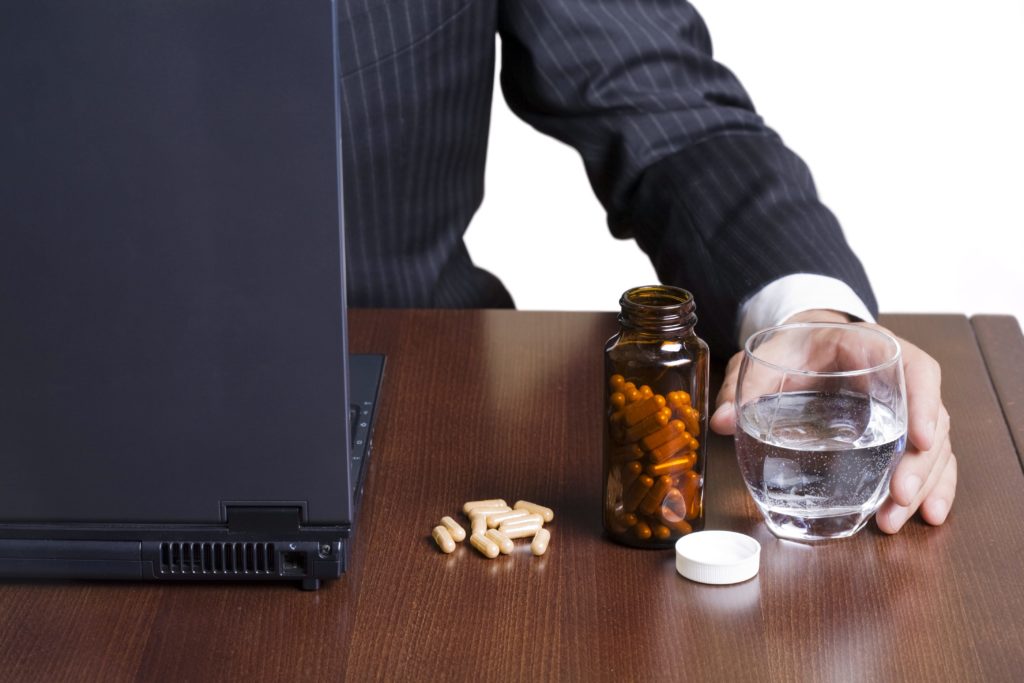Substance abuse statistics highlight the urgent need for effective solutions to combat addiction and support recovery. From alcohol abuse to the opioid crisis, substance abuse impacts millions annually. For those seeking answers or help for themselves or others, understanding these numbers is key. Knowing the trends, risks, and benefits of substance abuse treatment programs can help pave the path to recovery.
Let’s explore key statistics, what the trends mean, strategies to prevent addiction’s worst outcomes, professional treatments available, and why The Right Step offers a trusted solution for recovery.
Statistics on substance abuse
Numbers reported by drugabusestatistics.com tell a sobering story about the reach of addiction. Here are crucial substance abuse statistics to keep in mind:
Addiction statistics across substances
- 16.8% of Americans 12 and over used drugs in the last month, a 1.9% increase year-over-year (YoY).
- 70.5 million or 24.9% of people 12 and over have used illegal drugs or misused prescription drugs within the last year.
- 145.1 million people aged 12 and over have illicitly used drugs in their lifetime.
- 28.9 million or 21.5% of Americans who have consumed alcohol in the past month have an alcohol use disorder.
- 21.6% of those with drug disorders have an opioid disorder; this includes prescription pain relievers or “painkillers” and heroin).
These figures reveal not just prevalence but danger in prolonged use. For example, chronic alcohol abuse can lead to liver diseases or cardiovascular complications. Misusing prescription medications such as opioids can quickly spiral into dependency, contributing to climbing drug overdose statistics each year.
Teen substance abuse statistics
Youth face unique risks, with 1 in 8 teenagers reporting substance misuse in the past year. Studies show 36.8% of young people use an illegal drug by the time they reach 12th grade. This early exposure not only affects brain development but also increases the likelihood of developing addiction later in life. Education and open communication can deter early experimentation.
Alcohol abuse statistics
A concerning figure is how widespread alcohol-related harm has become. It contributes to 95,000 deaths annually in the United States alone. Its easy availability and cultural normalization make it a rampant yet overlooked challenge.
This abuse comes with an enormous financial toll. Nearly $223 billion in health care costs and lost productivity are attributable to alcohol use disorders.
Opioid abuse statistics and implications
On average, 19.1% of males and 14.6% of females used illegal drugs or misused prescription drugs over the last month. Shockingly, 8.9 million or 3.4% of Americans aged 12 and older misuse opioids at least once over a 12-month period.
The opioid epidemic continues as nearly 50,000 lives are lost to opioid-related overdoses annually. Widespread misuse and over-prescription have caused long-lasting fallout, severely impacting families and communities.
By understanding these trends, loved ones can act earlier, creating opportunities for prevention and treatment before the condition worsens.
Preventing the worst outcomes of addiction
Preventing tragedy often starts with raising awareness and offering accessible resources. Substance abuse is preventable when proactive steps are taken:
Education and early intervention
Teaching adolescents and young adults about the consequences of misuse can reduce experimentation. Programs tailored to schools and communities can show how habits form and where misuse leads.
Reducing stigma around seeking help
For many facing addiction, stigma becomes an obstacle. Open conversations and compassionate support make it easier for someone to ask for and accept treatment. Words matter—avoiding terms like “addict” can foster understanding and diminish shame.
Community support and resources
Local organizations, support groups, and hotlines offer accessible assistance and guidance. These lifelines can interrupt cycles of abuse.
By stopping addiction early—through education, de-stigmatization, and increased resources—more lives can avoid the harshest outcomes.
Types of professional treatment that can help
Entering treatment offers hope no matter where someone is on their recovery path. There’s no one-size-fits-all, but several substance abuse treatment programs address specific needs:
Medical detox
The detox process clears substances from the body and manages withdrawal symptoms in a controlled environment. Medical staff offer care and supervision around the clock to prioritize safety.
Rehab programs
- Inpatient drug rehab provides structured care in a dedicated facility, putting focus fully on recovery.
- Intensive outpatient treatment allows participation in therapy while living at home, giving added flexibility.
- Dual diagnosis treatment addresses both substance use and co-occurring mental health needs. This combination is critical since many face overlapping challenges of mental health and substance abuse.
Evidence-based therapies
Treatments rooted in science, like cognitive-behavioral therapy and dialectical behavior therapy, explore the patterns driving use. Coping strategies learned here can transform how someone responds to stress or temptation.
Recovery always takes effort, but professional assistance provides the tools to succeed.
Benefits of addiction treatment
Effective addiction treatment not only lessens substance dependence but also rebuilds health and relationships. Here’s what to expect:
Improved physical and mental health
The body begins to heal once substances leave the system. Treatment addresses prolonged damage, like high blood pressure from alcohol misuse or respiratory issues from drug use.
Psychological growth also happens. Participants often see reduced symptoms of anxiety, depression, or trauma, especially with therapy guiding recovery.
A supportive recovery network
Therapy and group programs create a sense of belonging vital for positive change. These connections encourage shared experiences and insight from those who have faced similar battles.
Restoring relationships and daily routines
Loved ones often feel the effects of substance abuse firsthand. Treatment fosters communication and techniques that allow families to rebuild trust patiently. Participants also learn skills to resume responsibilities or hobbies interrupted by addiction.
The rewards of treatment spread beyond just breaking addiction. They touch every aspect of life, often allowing people to envision a future that once seemed out of reach.
Why choose The Right Step?
Facing addiction requires strength, but having trusted support makes all the difference. The Right Step has earned its reputation as a compassionate partner in recovery. Here’s what sets us apart:
Comprehensive care tailored to you
The Right Step provides programs to address every stage of recovery. Whether through structured residential treatment or flexible outpatient care, each approach centers on meeting you where you are.
Expertise in dual diagnosis treatment
Since mental health and substance abuse often overlap, our team specializes in treating both issues simultaneously. Addressing root causes of misuse fosters lasting success. We provide personalized care to ensure every client receives the support they need for true recovery.
A community of support for long-term recovery
We don’t just treat addiction—we prepare clients for lifelong wellness. Aftercare is an integral part of our philosophy, offering support even after you return to daily life. Our goal is to ensure you have the tools and resources needed to thrive long after treatment ends.
Respectful, compassionate care
Language and approach matter. Here, you’ll find respect at every interaction. We take pride in fostering an environment of trust and warmth, one that makes asking for help feel not just possible but welcomed.
With a proven track record and the heartfelt goal of recovery, The Right Step is dedicated to every moment of your healing experience.
Get the help you need today from The Right Step
If you’re battling substance abuse or exploring substance abuse treatment programs, don’t wait to take action. Professional help and compassionate support could make all the difference in your recovery.
Call us today at 888.488.6017 or use our convenient online contact form. Taking the first step might feel daunting, but every positive change starts with a choice. Recovery is within reach, and The Right Step can guide you there.






